+04302009-07-02T18:07:01+04:30312009b+04:30Thu, 02 Jul 2009 18:07:01 +0430 2, 2008 at 7.27 +04:3007 (world affairs)
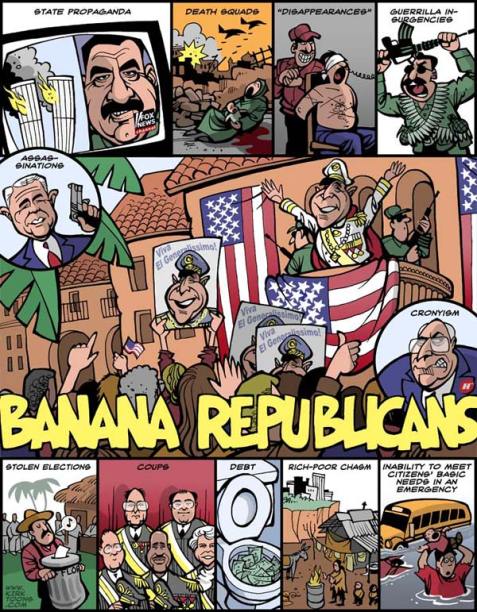 Latin America nations are known for flash coups. It is high time that the world pays attention to the ill developed region and rescue from political chaos and social anarchy.
Latin America nations are known for flash coups. It is high time that the world pays attention to the ill developed region and rescue from political chaos and social anarchy.
Jorge Heine writes in The Hindu (1 July 2009)
The ouster by the military of President Manuel Zelaya of Honduras, taken unceremoniously from his official residence in Tegucigalpa, and flown, still in his pajamas, to San José, Costa Rica, is a novel challenge. Leaving military coups behind is one of Latin America’s great accomplishments. Democracy, albeit with imperfections, is the norm, with the single exception of Cuba, and the times when the region was chiefly known for “coups and earthquakes” seemed to be over.
This does not mean that civilian, elected governments have had some sort of blank cheque guarantee to last. In this decade alone, several Presidents were forced to leave before their time was up. They were unable to deal with economic and social crises, mass demonstrations and widespread popular opposition to their rule. Although these “falls from grace” of Presidents like Fernando de la Rúa in Argentina, Gonzalo Sánchez de Lozada in Bolivia and Gustavo Novoa in Ecuador, among others, were sometimes described as “soft coups,” that was not really the best term. Sometimes, governments just fall apart, and although in parliamentary systems there are ways and means of dealing with such crises, in the more rigid presidential systems in Latin America, there is no such flexibility, and some messiness ensued.
But it is one thing for a government to fall apart; it is quite another to have the generals give it a push, by bursting into the President’s bedroom at 5 o’clock on a Sunday morning, manhandle him at gunpoint, put him on a plane and send him off to a neighbouring country. Once that is condoned, anything goes, and that way lies the road back to the heyday of the Pinochets, Somozas and Stroessners of our world.
In marked contrast to what happened in 2002 in the coup against President Hugo Chávez in Venezuela, the international community, including Washington, has been unanimous in condemning the coup. Aware of treading dangerous ground, the Honduran military immediately worked with Congress to have a new President take office. This is Roberto Micheletti, the president of Honduras’ unicameral Parliament, sworn in after the Congress approved President Zelaya’s resignation in a letter the latter denies having written (so much for parliamentary procedures).
Far from being a “soft coup,” this was pretty harsh. Eight Cabinet members were arrested, as was the mayor of the country’s second largest city, San Pedro Sula. In a bizarre act, the ambassadors of Cuba, Nicaragua and Venezuela were apparently arrested and roughed up. In the best tradition of such events, a curfew was declared on Sunday night and the military is throwing its weight around, particularly against Mr. Zelaya’s supporters.
Honduras did find itself in the midst of a political crisis. This had been triggered by Mr. Zelaya’s efforts to call for a referendum, to be held last Sunday, that would have opened the possibility of a change to the Constitution in next November’s elections (when Mr. Zelaya’s four-year term was up), allowing the President to be re-elected. Given the refusal of Army General Romeo Vásquez to help run the referendum, Mr. Zelaya sacked him, something opposed by the Supreme Court which proceeded to reinstate the general. The Supreme Court also stated that any such referendum would be unconstitutional.
In short, according to one perspective, this has been largely a mess created by Mr. Zelaya’s own power-grabbing attempts. By trying to secure a second term in office, he ended up creating the conditions for his own ouster, something for which he would have no one to blame but himself.
Another explanation has been more political. Although a rancher and businessman from a conservative background, who favours a bushy moustache, cowboy hats and boots, elected on the ticket of the right-wing Liberal party, President Zelaya had a change of heart of sorts. He had the audacity to visit Cuba, to strengthen ties with Venezuela, and to actually have Honduras join ALBA, the Bolivarian Alternative for the Americas, led by Mr. Chávez, and also formed by Bolivia, Ecuador and Nicaragua. This is one reason President Chávez has been in the forefront of those who have denounced the coup, and has even intimated, perhaps not altogether prudently, that he might send his own troops to take care of the situation and put Mr. Zelaya back in office.
There is an element of comic opera in all this, and we should not forget that Honduras was the country that originally gave rise to the very term “banana republic.” Until a few years ago, its capital, Tegucigalpa, had neither a traffic light in all of its city grid, nor a building high enough to warrant an elevator. But the stakes are high, the game is dead serious and I am afraid the Honduran military and its supporters may have bitten off a piece bigger than they will be able to chew on, let alone swallow.
President Zelaya did not handle his somewhat clumsy attempt at securing his re-election very adroitly, to put it mildly. But that is neither here nor there. The country was heading directly into a political crisis, but there are constitutional mechanisms to deal with it. Some solution should have been found through a compromise between the government and the opposition, or, if push came to shove, through some mediation efforts. The notion that whenever there is a major disagreement between the Executive and the Legislature, the way forward is calling in the Army is something that was tried in the past in Latin America (and elsewhere) and found wanting.
Having said this, the challenge to the international community, and particularly the hemispheric one, is not a minor one. Over the past two decades, starting at the Organisation of American States (OAS) Assembly in Santiago de Chile in 1991, and culminating in the one held in Lima, Peru, on September 11, 2001, when the Inter-American Democratic Charter was unanimously approved, the Americas have put the strengthening of democratic institutions among their foremost concerns. Many of the countries in the region have “low-intensity” democracies, but democracies nonetheless. A “democratic clause” in many regional integration treaties means that those who stray from the democratic path are excluded and penalised.
A variety of international political cooperation mechanisms, like the Rio Group, the South American Community of Nations (UNASUR), and the Ibero-american Summits have also embraced this democratic clause, while democracy promotion and electoral assistance has been one of the defining features of a revitalised OAS. Coup attempts in Paraguay and elsewhere have thus been foiled.
Will they be able to “roll back” a coup that already took place?
President Lula of Brazil, perhaps the leader with most credibility south of the Rio Grande, has said Brazil will not recognise any Honduran President except Manuel Zelaya. President Bachelet of Chile, the pro tempore chair of UNASUR, has been canvassing its members, which are taking the same line as Brazil. The OAS has unanimously condemned the coup. Miguel D’Escoto, president of the United Nations General Assembly, has already announced that he will invite President Zelaya to address the UNGA in New York.
President Barack Obama has also condemned the coup, and the State Department has indicated that it worked for several days to stave it off, albeit unsuccessfully. The U.S. has troops in Honduras, to train the Honduran Armed Forces and to work on counter-narcotics and disaster relief in Central America, and thus has some leverage. Honduras is also part of the CAFTA-DR agreement with the U.S. If the benefits from this trade agreement are denied to Honduras, its products will have a hard time competing in the U.S. market.
Honduras is part of the Central American Common Market. If it is excluded from it, it will be costly.
In many ways, this is the second key test of Mr. Obama’s new policy towards Latin America. Ironically, the first also took place in Honduras, in early June, at the OAS General Assembly meeting that unanimously lifted the 1962 resolution that suspended Cuba’s membership in the organisation. President Obama has indicated his commitment to working with the countries of the region, through multilateral institutions, to further economic progress and democratic development. If Mr. Zelaya finds himself back in office (however briefly — his term has only seven months to go), as a result of concerted international pressure, it would show a new measure of hemispheric cooperation.
The so-called “facts on the ground” have their own dynamic, and reversing such military takeovers are never easy, though by no means impossible. This is what happened in Venezuela in 2002, when President Chávez, three days after being ousted, found himself back in office.
Honduras poses a true litmus test of the commitment of the hemispheric community to democratic stability and continuity. If the Inter-American Democratic Charter is not held up now, and the semi-farcical, Keystone Cops Honduran coup is not reversed, it means that much of the political progress we have seen in the region since 1990 can far too easily be undone.


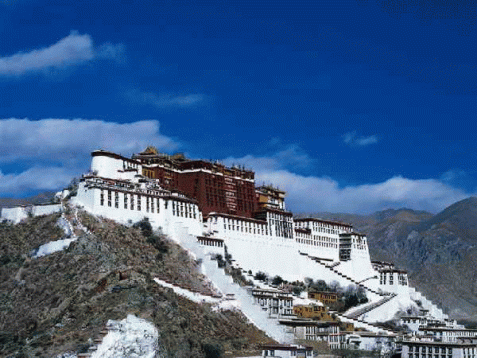 The Tibetan government in exile is in dilemma. To oppose and succeed the mighty Chinese is impossible. It will also be in contrary to the Dalai Lama’s non violent principles if they take up arms. After unsuccessfully opposing the olympics in Beijing despite a strong no from the Dalai Lama, the Tibetans are crossroads now. It is not possible now even the autonomy demanded by Tibetans as the least concession from China.
The Tibetan government in exile is in dilemma. To oppose and succeed the mighty Chinese is impossible. It will also be in contrary to the Dalai Lama’s non violent principles if they take up arms. After unsuccessfully opposing the olympics in Beijing despite a strong no from the Dalai Lama, the Tibetans are crossroads now. It is not possible now even the autonomy demanded by Tibetans as the least concession from China.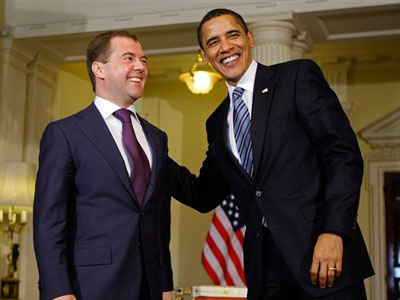 Keeping up his promise, Barack Obama had reached out to Russia. The happily concluded meeting between the heads of USA and Russia is to be taken seriously then there is a possibility of good times ahead. Especially in the nuclear disarmament front things will move in the right direction.
Keeping up his promise, Barack Obama had reached out to Russia. The happily concluded meeting between the heads of USA and Russia is to be taken seriously then there is a possibility of good times ahead. Especially in the nuclear disarmament front things will move in the right direction.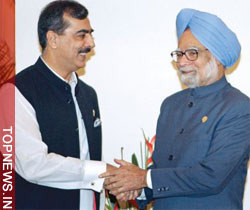 Is the UPA foreign policy mandarins so weak to lose to Pakistani diplomats? That’s what it seems to have happened in the NAM summit in Egypt. Leaving its original position of “no talks untill action against 26/11 Mumbai attackers”. Although I welcome the change in India’s stand, I feel sorry for the flip flop foreign policy. India should maintain its communication channel under all trying circumstances. Any letdown in communication will push the progress many miles backward.
Is the UPA foreign policy mandarins so weak to lose to Pakistani diplomats? That’s what it seems to have happened in the NAM summit in Egypt. Leaving its original position of “no talks untill action against 26/11 Mumbai attackers”. Although I welcome the change in India’s stand, I feel sorry for the flip flop foreign policy. India should maintain its communication channel under all trying circumstances. Any letdown in communication will push the progress many miles backward.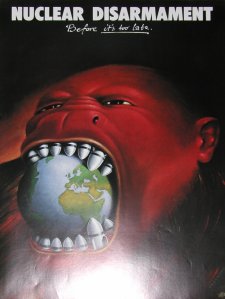 Universal nuclear disarmament is urgently needed to ensure peace and prosperity of the world. If the current generation of the world leaders are giving good life for the present and future generations nuclear disarmament should be immediately enforced.
Universal nuclear disarmament is urgently needed to ensure peace and prosperity of the world. If the current generation of the world leaders are giving good life for the present and future generations nuclear disarmament should be immediately enforced.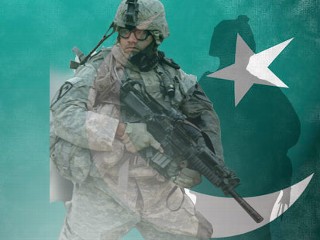 Knowingly or unknowingly Pakistan has been breeding hardcore terrorists in its soil for a very long time. Now its own president Asif Ali Zardari had admitted this known secret publicly. The Indian Express reports (10 July 2009) For the first time, Pakistan President Asif Ali Zardari admitted that militants and extremists were “created and nurtured” in the country as a policy to achieve some short-term tactical objectives. But they began to haunt the country in the post-9/11 era, Zardari said in a candid admission during an interactive meeting with former senior civil servants at the presidency on Tuesday night. Militants and extremists emerged on the national scene and challenged the state not because the civil bureaucracy was weakened and demoralised, but because they “were deliberately created and nurtured as a policy to achieve some short-term tactical objectives,” he said. “Let us be truthful to ourselves and make a candid admission of the realities,” Zardari said. “The terrorists of today were the heroes of yesteryears until 9/11 occurred and they began to haunt us as well,” he added. Labelling Pakistan as a frontline state in the war against terrorism, Zardari pledged to eliminate this scourge from society. “I have taken charge at a difficult time and will come up to the challenges the country is facing.” His remarks came days after his comments in an interview that the Pakistan Army would even target militants it had backed in the past for use as a proxy force against India. The army is currently engaged in a campaign against the Taliban in the northwestern Swat valley and is gearing up for a push against Tehrik-e-Taliban Pakistan chief Baitullah Mehsud and his network in South Waziristan tribal region. Zardari also stressed the need for greater national reconciliation, saying he intended to keep all political forces together because Pakistan cannot afford confrontation at this juncture. “Dialogue is our most powerful weapon…we defeated a dictator through the power of dialogue and we intend to continue holding dialogue to resolve various issues confronting Pakistan,” he said. “We are on the brink and we must realise that personal political games can no longer be played,” he added. Responding to various suggestions by the former civil servants, Zardari said the government is taking several steps to improve governance, tackle militancy and extremism, improve law and order, agricultural output and power generation, strengthen institutions and devolve power.
Knowingly or unknowingly Pakistan has been breeding hardcore terrorists in its soil for a very long time. Now its own president Asif Ali Zardari had admitted this known secret publicly. The Indian Express reports (10 July 2009) For the first time, Pakistan President Asif Ali Zardari admitted that militants and extremists were “created and nurtured” in the country as a policy to achieve some short-term tactical objectives. But they began to haunt the country in the post-9/11 era, Zardari said in a candid admission during an interactive meeting with former senior civil servants at the presidency on Tuesday night. Militants and extremists emerged on the national scene and challenged the state not because the civil bureaucracy was weakened and demoralised, but because they “were deliberately created and nurtured as a policy to achieve some short-term tactical objectives,” he said. “Let us be truthful to ourselves and make a candid admission of the realities,” Zardari said. “The terrorists of today were the heroes of yesteryears until 9/11 occurred and they began to haunt us as well,” he added. Labelling Pakistan as a frontline state in the war against terrorism, Zardari pledged to eliminate this scourge from society. “I have taken charge at a difficult time and will come up to the challenges the country is facing.” His remarks came days after his comments in an interview that the Pakistan Army would even target militants it had backed in the past for use as a proxy force against India. The army is currently engaged in a campaign against the Taliban in the northwestern Swat valley and is gearing up for a push against Tehrik-e-Taliban Pakistan chief Baitullah Mehsud and his network in South Waziristan tribal region. Zardari also stressed the need for greater national reconciliation, saying he intended to keep all political forces together because Pakistan cannot afford confrontation at this juncture. “Dialogue is our most powerful weapon…we defeated a dictator through the power of dialogue and we intend to continue holding dialogue to resolve various issues confronting Pakistan,” he said. “We are on the brink and we must realise that personal political games can no longer be played,” he added. Responding to various suggestions by the former civil servants, Zardari said the government is taking several steps to improve governance, tackle militancy and extremism, improve law and order, agricultural output and power generation, strengthen institutions and devolve power. Latin America nations are known for flash coups. It is high time that the world pays attention to the ill developed region and rescue from political chaos and social anarchy.
Latin America nations are known for flash coups. It is high time that the world pays attention to the ill developed region and rescue from political chaos and social anarchy.